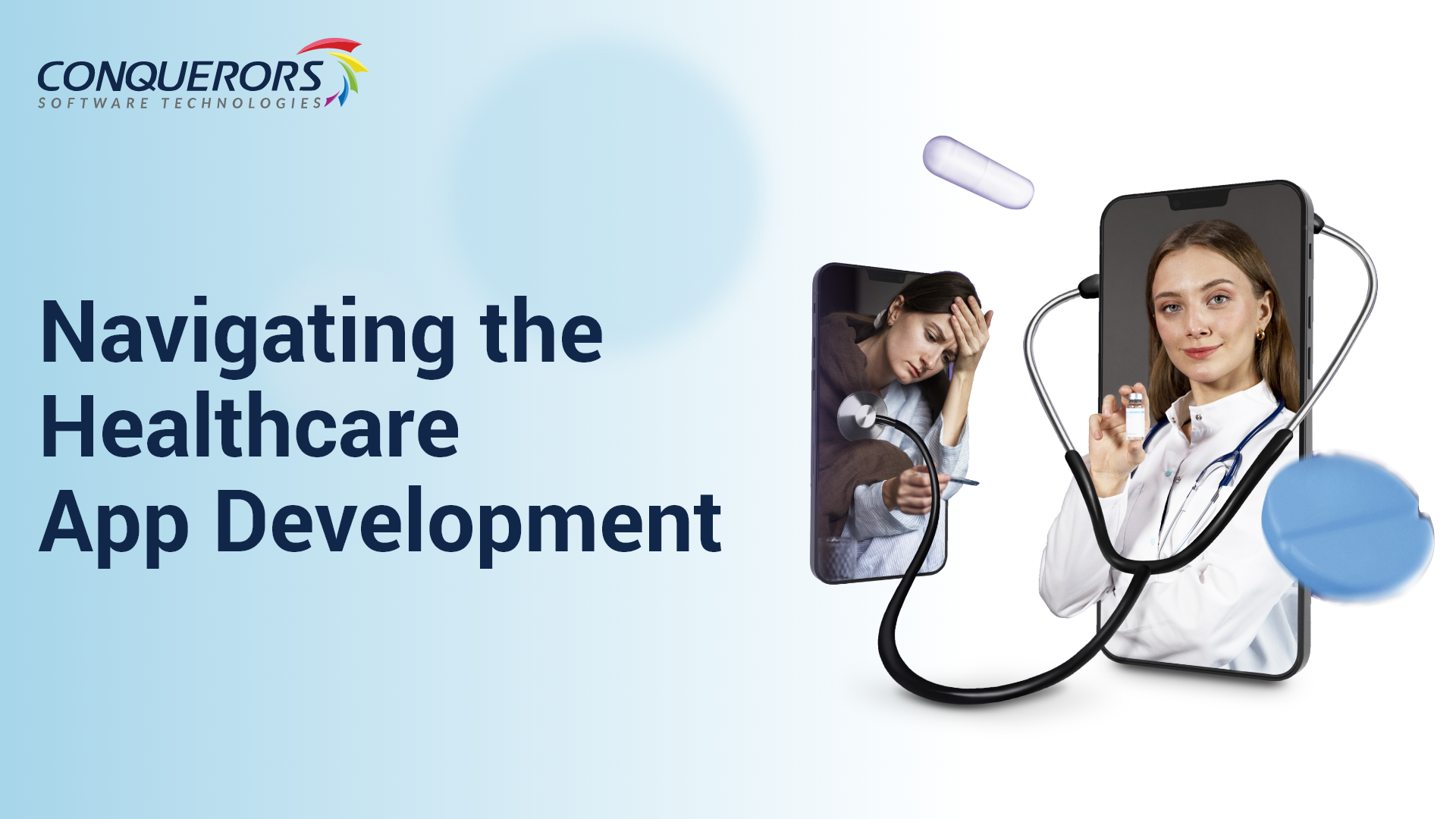Navigating the Healthcare App Development Landscape: A Comprehensive Guide to Success
In the rapidly evolving world of healthcare, where the demand for accessible and efficient services has surged, healthcare app development has become a crucial frontier. With the global rise of pandemics and an increased focus on well-being, the demand for online and mobile healthcare apps is soaring. In this competitive landscape, it is essential for healthcare app developers to create solutions that genuinely make a difference. This blog explores the dynamics of healthcare app development, emerging trends, key considerations, and notable projects, providing a guide for success in this dynamic industry.
The Landscape of Healthcare Apps:
The healthcare app development sector is witnessing unprecedented growth, with more than 90,000 new digital health apps introduced in 2020 alone. These apps cover a wide range of services, including virtual doctor appointments, chronic disease management, wellness, mental health, and more. The global market now boasts over 350,000 health apps, emphasizing the need for developers to identify gaps and create meaningful solutions.
Trending Factors in Healthcare App Development:
Factors such as increased smartphone adoption, heavy investment in digital health, and the impact of recent global health crises have fueled the growth of healthcare app development. The mHealth app market was projected to reach $102.35 billion by 2023. Additionally, the emphasis on employee well-being in businesses facing labor shortages has increased the demand for healthcare apps that promote proactive health management.
Types of Healthcare Apps:
Healthcare apps can be categorized into two main types: those designed for consumers and those tailored for professionals. Consumer-focused apps cover a broad spectrum, including education, prevention, patient engagement, and chronic disease management. Professional apps cater to clinicians, nurses, and other medical professionals, aiming to enhance efficiency, communication, and patient care.
Steps for Healthcare App Development:
Identify a Problem and Target Audience:
Research and pinpoint a real-world problem that your app can solve.
Define your target audience to tailor your solution effectively.
Market Research:
Utilize tools like SoGoSurvey and Qualaroo to understand your target audience.
Develop a Minimum Viable Product (MVP) for data collection and feedback.
Build an Effective Development Team:
Choose between building an in-house team or outsourcing to a healthcare software development company.
Leverage tools like HealthTech ROI Calculator for cost efficiency.
Plan a Development Strategy:
Select a suitable software development methodology, such as Agile.
Explore frameworks like Scrum and Kanban for streamlined development.
Design and Develop an MVP:
Use market research insights to design a simple app with essential features.
Launch an MVP early to gather user feedback and refine the final product.
Next-Gen Features for Healthcare App Development:
Embrace emerging technologies for enhanced healthcare apps:
AI and ML: Intelligent chatbots, medical imagery analysis, symptom tracking, and real-time posture detection.
Blockchain: Integration with Electronic Health Record (EHR) systems, medicine tracking, and decentralized patient portals.
IoMT (Internet of Medical Things): Smart medical appliances, wearables with advanced sensors, and traceable medicine.
Notable Healthcare App Development Projects:
Gain inspiration from successful healthcare apps:
WebMD: Providing healthcare information, symptom checker, and doctor listings.
Apple Health: A comprehensive tracker for various health metrics.
Medici: Facilitating quick and cost-effective connections between patients and doctors.
Common Pitfalls and Reasons for Failure:
Poor User Experience & Accessibility: Ensure an intuitive interface and consider accessibility for a diverse user base.
Failure to Solve User Problems: Develop solutions that address real problems and stand out from the competition.
Insufficient Research or Industry Expertise: Conduct thorough research and collaborate with healthcare professionals to ensure your app is fit for purpose.
Conclusion:
The healthcare app development landscape is thriving, Conquerors software technologies present immense opportunities for those who navigate it strategically. By understanding market trends, incorporating next-gen features, and avoiding common pitfalls, developers can create impactful and successful healthcare apps that cater to the evolving needs of both consumers and medical professionals. In a world where health is a top priority, innovative healthcare apps can make a lasting difference in improving overall well-being.
